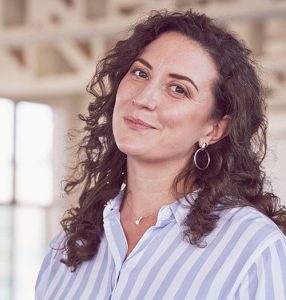The International Coaching Federation (ICF) estimates that in 2023 there will be 93,000 certified health and fitness coaches worldwide. Chances are you’ve encountered coaches with many niches including wellness, career, relationship, and executive coaches. It can be helpful to understand the expertise and scope of practice for different types of fitness and wellness leaders.
Want to know more about wellness coaching? Check out the Certified Wellness Coach course!
WHAT IS A LIFE COACH?
A life coach is a qualified professional who, through the course of their education, has studied coaching skills like behavior change, motivational interviewing, and communication. They also likely have an area of expertise, called their coaching niche. Leadership coaches who’ve studied leadership, management theory, and entrepreneurship. Life coaches specializing in relationships study how to foster high-quality relationships while working through interpersonal conflict so they can help individuals and couples connect more deeply.
There are many other examples of specialties, but the things all life coaches have in common is they support individuals, groups, or teams to set goals, identify obstacles to those goals, and then resolve any ambivalence or tension that arises as they put those plans into action.
Their work focuses not on telling clients what to do, like a strategist, but empowering them with information and a safe space to examine their behavior so they can make good decisions. Through their work together, clients create sustainable, internally driven change.
WHAT DOES A LIFE COACH DO?
Ethical life coaches work within their scope of practice, education, and expertise to support clients in making sustainable change.
For example, a relationship coach would likely not focus on career change or entrepreneurship, unless that was also part of their expertise. Typically, life coaches work with their clients on various domains of life including career, home, relationships, family, financial, and spiritual, and incorporate how these different domains affect the client’s progress toward their goals.
Working 1-on-1, in groups, or within a corporate structure, a life coach guides clients to set goals that are intrinsically aligned. Often that means asking open-ended questions, guiding the client to understand themselves and connect with more authentic goals.
Then the coach will support the client to identify aligned, intentional behaviors that grow them towards those goals. Taking intentional action builds autonomy, the sense they can make decisions for themselves, and self-efficacy, the sense they can grow and problem-solve towards the life they want for themselves.
It’s important to note that life coaches are not therapists. A therapist treats mental health conditions, is licensed by the state, and is governed by a code of ethics. Coaches do not treat or diagnose mental health conditions and are typically focused on adding positive behavior, habits, and thoughts with a future-focused lens.
THE DIFFERENCE BETWEEN WELLNESS COACHING AND LIFE COACHING
Depending on a life coach’s expertise and education, they may help their clients with personal organization, time management, career development, productivity, relationships, finances, starting a business, and many more sub-specialties. The broad focus of life coaching can help support a 360-degree view of their client’s life, potentially moving through significant transitions and changes. Often that broad focus is toward a goal related to the life coach’s niche.
A health coach or wellness coach’s education is more focused. NASM defines wellness coaching as facilitating the process of “mental, physical, and emotional betterment of life” through the domains of movement, sleep, nutrition, recovery and regeneration, and mental and emotional well-being.
Because the scope of wellness coaching is more focused, the coach and client work directly on the aspects of the client’s wellness. This likely includes sharing evidence-based information on wellness domains, supporting the client to resolve ambivalence to change, and building sustainable and health-promoting habits.
| Wellness Coach | Life Coach |
| Focus specifically on wellness domains. | Focus broadly on different domains of life. |
| Works with clients on holistic habits affecting wellness using in-depth knowledge of sleep, nutrition, movement, recovery, stress management, and behavior change. | Works with clients broadly unless has additional in-depth training around a specific area of wellness or well-being. |
SUMMARY
Since its inception in the 1980s, life coaching has and will continue to evolve. Each year hundreds of thousands of individuals and employers hire coaches to foster authentic growth. Regardless of the coach’s specialty, all coaches create a relationship built on trust, ethical practice, reliability, and a safe space where clients can look at their lives, habits, and beliefs. Finding the right coach, or becoming the coach you dream of being, starts with getting clear about the change you want to make.
While life coaches generally start with a broad view of all domains of life, it’s often their niche expertise that makes them invaluable to their clients. Similarly, it’s a wellness coach’s education in the direct domains of wellness that empowers them to support their clients to build lasting, meaningful, positive change on the client’s wellness journey.
DARLENE MARSHALL

Darlene is a Holistic Wellness Coach who’s been working in the fitness and wellness space since 2012. She’s an expert at the intersection of fitness, wellness, and well-being. In 2021 Darlene was named America’s Favorite Trainer in 2021 by BurnAlong. She hosts the Better Than Fine podcast on the NASM Podcasting Network. She’s has a Masters in Applied Positive Psychology from the University of Pennsylvania. Darles is certified with NASM in Wellness Coaching and Personal Training. She has additional certifications in Nutrition Coaching, Neurolinguistic Programming, and 200hr YTT in Alignment Yoga and training in sleep coaching, motivational interviewing, meditation, and mindfulness. You can find her on Instagram @darlene.coach

